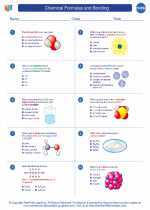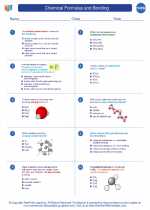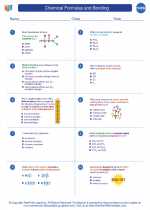Creativity in Chemistry
Creativity is an important aspect of studying and practicing chemistry. It involves the ability to think outside the box, come up with innovative solutions, and make connections between different concepts. In chemistry, creativity is essential for problem-solving, designing experiments, and developing new theories and technologies.
Study Guide for Creativity in Chemistry
Here are some tips for developing and applying creativity in the study of chemistry:
- Exploring Concepts: Instead of just memorizing facts and formulas, try to understand the underlying concepts and principles. Think about how different concepts relate to each other and how they can be applied in various scenarios.
- Problem-Solving: When solving chemistry problems, don't just rely on standard procedures. Try different approaches, consider alternative solutions, and think critically about the problem at hand.
- Experiment Design: In the laboratory, use your creativity to design experiments that test hypotheses and explore new ideas. Consider different variables, experimental setups, and potential outcomes.
- Visualization: Use visual aids such as diagrams, models, and simulations to help you understand complex chemical processes. Creating visual representations can help you see patterns and connections that may not be immediately obvious.
- Collaboration: Engage in discussions with peers, teachers, and professionals in the field of chemistry. Sharing ideas and perspectives can spark new insights and inspire creative thinking.
By incorporating creativity into your approach to studying chemistry, you can develop a deeper understanding of the subject and become better equipped to tackle complex problems and contribute to the advancement of the field.
.◂Chemistry Worksheets and Study Guides High School. Chemical Formulas and Bonding
Worksheet/Answer key Chemical Formulas and Bonding
Chemical Formulas and Bonding  Worksheet/Answer key
Worksheet/Answer key Chemical Formulas and Bonding
Chemical Formulas and Bonding  Worksheet/Answer key
Worksheet/Answer key Chemical Formulas and Bonding
Chemical Formulas and Bonding 

 Worksheet/Answer key
Worksheet/Answer key
 Worksheet/Answer key
Worksheet/Answer key

The resources above cover the following skills:
PHYSICAL SCIENCE (NGSS)
Matter and Its Interactions
Students who demonstrate understanding can:
Plan and conduct an investigation to gather evidence to compare the structure of substances at the bulk scale to infer the strength of electrical forces between particles.